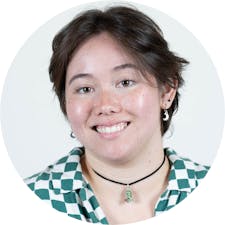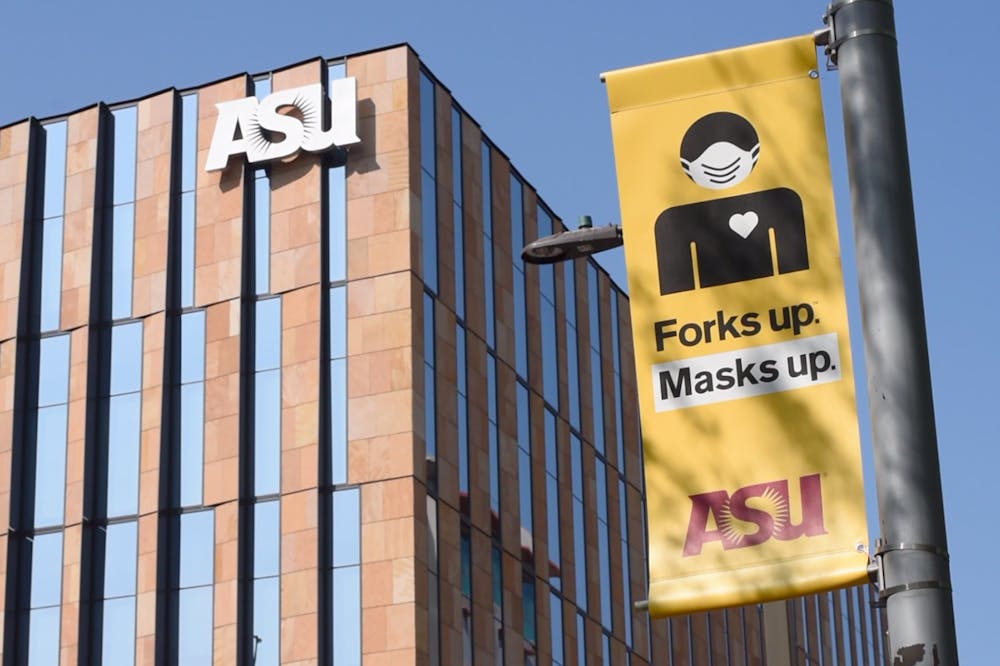Multiple Arizona education groups, along with some individual ASU faculty, are plaintiffs in an injunction filed Aug. 12 against the state in an attempt to stop COVID-related clauses in budget reconciliation bills from being enacted later this month on Sept. 29.
Four of the state's budget bills have prohibitions against mask and vaccine mandates at the state's public schools and universities. During oral arguments Monday, the plaintiffs said the mandates don't follow the state’s own constitutional rules, according to the Arizona Center for Investigative Reporting.
Throughout the pandemic, ASU faculty and staff have raised awareness about their demands for stricter enforcement of mask mandates, a school-wide vaccine requirement and other work accommodations they’ve explained in letters and petitions posted throughout the past year.
United Campus Workers of Arizona (UCWA), the wall-to-wall union representing faculty, staff and other campus workers, plans to host a "Funeral for Public Safety" to "mourn the death of health and safety at ASU" on Sept. 30.
READ MORE: ASU workers announce they are forming a union
The most recent letter from UCWA sent to ASU President Michael Crow, University deans and other leadership on Aug. 9, asked for masks to be required campus-wide and for all community members to be vaccinated with bi-weekly testing for those who needed exemptions. It also asked for hazard pay for all in-person workers and alternatives to participating in teaching, learning or working on campus.
University professors and workers said the University administration has encouraged them to go directly to a supervisor if they had concerns about COVID-19 and needed additional accommodations.
Richard Newhauser, an English professor and plaintiff in the lawsuit, said he faces health risks on a daily basis due to his old age. On campus, he said he has not seen students wear masks as diligently outside of the classroom as they do within one, and is therefore taking his life into his own hands.
Some faculty are not as comfortable publicly criticizing decisions the University has made regarding COVID-19. English instructor David Boyles said this comes down to who has tenure and who doesn't – he said by the time faculty get to a tenured position, they are almost too comfortable to speak out.
"The tenured faculty can talk to you, be on The State Press criticizing Michael Crow as much as they want and legally there is nothing really the University can do about that," Boyles said.
READ MORE: How faculty is making 'ASU work' during the fall semester
Before combining with the union following it's creation, the ASU Community of Care Coalition began its efforts to get better on-campus accommodations in response to COVID-19 before the Fall 2020 semester.
Addressed to President Crow and the Arizona Board of Regents, the group's first letter sent in summer 2020 urged a postponement of in-person classes and encouraged testing and the granting of accommodations for those who had requested them.
Laurie Stoff, a Barrett, The Honors College faculty fellow and union organizer, said members of the coalition moved to the union because it has more resources to address "other issues like fair and equitable pay, benefits, working conditions, contracts, things that are beyond the scope of the COVID pandemic."
The union plans to continue advocating for a University environment that supports and protects the community at large, no matter what role an individual plays.
"We have to keep in mind that this is the first time in American history that laws have been passed forbidding good health practices," Newhauser said. "It's time now to take the measures that are necessary to keep the entire University community safe."
Reach the reporter at awaiss@asu.edu and follow @WaissAlexis on Twitter.
Like The State Press on Facebook and follow @statepress on Twitter.
Continue supporting student journalism and donate to The State Press today.

Alexis Waiss is an assignment editor and senior reporter, covering breaking news and writing long-form stories. Alexis worked on SP's politics desk for a year, where she reported on the Legislature, higher education policy, student government, the city of Tempe and stories highlighting social justice. She previously worked as a fellow for the Asian American Journalist Association's VOICES program.




